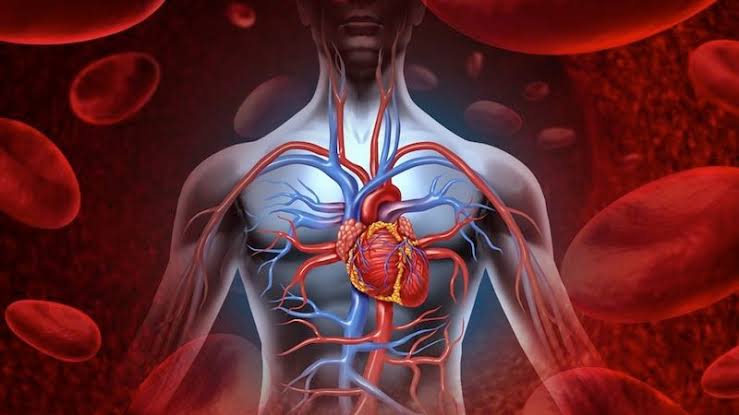Hemoglobin is a crucial protein in red blood cells responsible for transporting oxygen throughout the body. Maintaining healthy hemoglobin levels is essential for overall well-being, energy levels, and immune function. Low hemoglobin levels, known as anemia, can cause fatigue, weakness, shortness of breath, dizziness, and other health issues.
In this article, we will explore various natural and medical ways to increase hemoglobin levels, including dietary changes, lifestyle modifications, and medical treatments.
Understanding Hemoglobin and Its Importance
Hemoglobin is composed of iron and protein (globin) and is essential for oxygen transportation. It binds oxygen in the lungs and delivers it to tissues while carrying carbon dioxide back for exhalation. A deficiency in hemoglobin can lead to oxygen deprivation in organs and tissues, causing several health complications.
Normal Hemoglobin Levels
- Men: 13.8 to 17.2 grams per deciliter (g/dL)
- Women: 12.1 to 15.1 g/dL
- Children: 11 to 16 g/dL
- Pregnant women: At least 11 g/dL
When hemoglobin levels drop below the normal range, it is essential to take measures to restore them to avoid complications such as anemia.
Causes of Low Hemoglobin Levels
1. Nutritional Deficiencies
- Iron deficiency: The body needs iron to produce hemoglobin.
- Vitamin B12 deficiency: Essential for red blood cell production.
- Folate (Vitamin B9) deficiency: Helps in red blood cell formation.
- Vitamin C deficiency: Aids iron absorption.
2. Blood Loss
- Heavy menstruation in women.
- Internal bleeding due to ulcers, hemorrhoids, or gastrointestinal disorders.
- Surgery or injury.
3. Chronic Diseases
- Kidney disease
- liver disease
- and cancer can impair red blood cell production.
- Bone marrow disorders, such as leukemia.
4. Infections and Medications
Certain infections or autoimmune diseases can affect red blood cell production. Some medications, such as chemotherapy drugs, can suppress bone marrow function.
Natural Ways to Increase Hemoglobin Levels
1. Eat Iron-Rich Foods
Iron is the primary component of hemoglobin. Consuming iron-rich foods helps in hemoglobin production.
Iron-Rich Foods
Heme iron (animal sources, easily absorbed) such as –
- Red meat (beef, lamb, liver)
- Poultry (chicken, turkey)
- Fish (salmon, tuna, shellfish)
Non-heme iron (plant-based sources, less easily absorbed)
- Leafy greens (spinach, kale, broccoli)
- Legumes (lentils, chickpeas, beans)
- Nuts and seeds (pumpkin seeds, almonds, walnuts)
- Whole grains (quinoa, oats, fortified cereals)
2. Increase Vitamin C Intake
Vitamin C enhances iron absorption from plant-based foods. Pairing iron-rich foods with Vitamin C sources can improve hemoglobin levels.
Vitamin C-Rich Foods
- Citrus fruits (oranges, lemons, grapefruits)
- Strawberries
- Bell peppers
- Tomatoes
- Kiwi
3. Consume Vitamin B12 and Folate-Rich Foods
Vitamin B12 and folate help in the production of red blood cells and hemoglobin.
Vitamin B12 Sources
- Eggs
- Dairy products (milk, cheese, yogurt)
- Fortified cereals
- Fish and meat
Folate Sources
- Dark leafy greens
- Avocados
- Beans and peas
- Fortified grains
4. Increase Iron Absorption by Avoiding Iron Blockers
Certain substances interfere with iron absorption, leading to lower hemoglobin levels. Avoid consuming them with iron-rich foods.
Iron Blockers
- Tea and coffee (contain tannins that hinder iron absorption)
- Calcium-rich foods (milk, cheese) – avoid consuming with iron sources
- Processed foods with high levels of preservatives
5. Stay Hydrated
Dehydration affects blood volume and hemoglobin concentration. Drinking enough water supports overall blood health.
Lifestyle Changes to Boost Hemoglobin
1. Regular Exercise
Physical activity, especially strength training and aerobic exercises, boosts red blood cell production. Exercise increases oxygen demand, prompting the body to produce more hemoglobin.
Best exercises for increasing hemoglobin:
- Walking, running, or jogging
- Strength training (weightlifting)
- Yoga (poses that improve circulation)
2. Avoid Smoking and Alcohol
Smoking reduces oxygen transport capacity in the blood, leading to lower hemoglobin levels. Alcohol consumption can impair nutrient absorption, particularly iron, folate, and vitamin B12.
3. Reduce Stress
Chronic stress can affect blood cell production. Practicing relaxation techniques like meditation, deep breathing, and yoga can help maintain healthy hemoglobin levels.
Medical Treatments for Low Hemoglobin
If natural methods are insufficient, medical intervention may be required.
1. Iron Supplements
Doctors may prescribe iron supplements if iron deficiency is severe. These should be taken under medical supervision to avoid overdose. Take Tablet/ Syrup after food with water. Not more than 100mg elementary iron per day.
2. Vitamin B12 or Folate Supplements
If a deficiency in vitamin B12 or folate is the cause, supplementation can help restore normal hemoglobin levels.
3. Blood Transfusion
In severe cases of anemia, blood transfusions may be required to quickly increase hemoglobin levels.
4. Treating Underlying Conditions
If a disease is causing low hemoglobin, treating the underlying condition (e.g., kidney disease, bone marrow disorders) is crucial.
Home Remedies for Increasing Hemoglobin
- Beetroot Juice
Beetroot is rich in iron, folate, and antioxidants, making it an excellent remedy for boosting hemoglobin levels. Drinking a glass of beetroot juice daily can help.
- Pomegranate Juice
Pomegranates contain iron, vitamin C, and antioxidants, which improve blood health.
- Blackstrap Molasses
This natural sweetener is rich in iron, folate, and B vitamins. Taking a spoonful daily can help increase hemoglobin.
- Dates and Raisins
These dried fruits are packed with iron and can be consumed as a snack or added to meals.
Signs Your Hemoglobin Levels Are Improving
Once you start making dietary and lifestyle changes, you should monitor your body’s response. Signs of improvement include:
- Increased energy levels
- Reduced fatigue and dizziness
- Improved skin complexion
- Better focus and concentration
Conclusion
Maintaining healthy hemoglobin levels is essential for overall health and vitality. Eating a balanced diet rich in iron, vitamin C, vitamin B12, and folate, along with regular exercise and good hydration, can significantly improve hemoglobin levels. If hemoglobin remains low despite these efforts, seeking medical attention for supplements or other treatments is necessary.
By making conscious lifestyle and dietary choices, you can enhance hemoglobin levels naturally and ensure better oxygen supply to your body, leading to improved energy and well-being.








